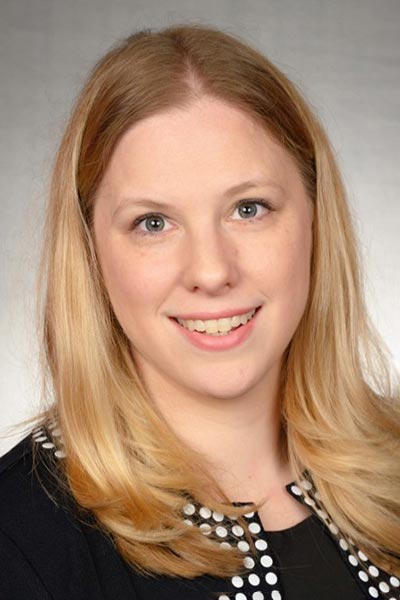Sessions addressing education and workforce have long been part of ACR Convergence programming. This year, the Annual Meeting Planning Committee (AMPC) is expanding that focus with a dedicated team tasked with developing programming around these important topics.

“We need to be thinking not only about enhancing and growing the number of providers who deliver rheumatologic care, we also need to be thinking about sustaining and preserving the people who are already in the workforce,” said Lisa Zickuhr, MD, MHPE, Chair of the Education and Workforce Team for the AMPC.
The sessions in this track are targeted to a diverse audience that includes clinician-educators, program directors, division directors, and anyone actively involved in maintaining, recruiting, and sustaining the rheumatology workforce.
“We’ve had several studies in the past decade demonstrating that we have a shortage of rheumatologists, and that shortage is going to continue to worsen because of changing population dynamics,” said Dr. Zickuhr, Assistant Professor of Rheumatology at Washington University. “The link between education and workforce is strong. As we train the future providers who deliver rheumatology care, we have to work together to brainstorm opportunities for enhancing and reinforcing our workforce.”
Two sessions at 7:30 a.m. PT on Monday, Nov. 13, will address this specifically. Recruiting, Retaining, and Sustaining the Rheumatology Workforce will take place in Room 5A-B, and Responding to the Pediatric Rheumatology Workforce Deficit: Novel Ideas to Close the Gap will take place in Room 7A-B.
“Rheumatologists have already begun to experience the crunch of having more referrals and more cases than one provider can conceivably manage independently, and the problem is going to continue to intensify,” Dr. Zickuhr said, pointing out that in some states, there is only one pediatric rheumatologist to treat all of the children there living with a musculoskeletal or rheumatic disease.
“We have a crisis already, especially with pediatric rheumatology,” she continued. “In order to prevent adult rheumatology from becoming a crisis and to be proactive about the situation, we need to think of ways to expand how we provide care to patients.”
At the start of the conference, on Sunday, Nov. 12, Building Community: Developing a Medical Education Community of Practice in Subspecialty Professional Societies will address how other medical specialties have handled similar challenges. The session begins at 9 a.m. in Room 5A-B.
“We are enthusiastic about having all people interested in education and workforce attend to learn from the societies of hematology, oncology, and infectious diseases that have implemented communities of practice about the benefits of sharing resources among a pretty small community of people who are interested in education and workforce and how that might transcend to rheumatology specifically,” Dr. Zickuhr said.
The education and workforce programming also includes sessions on what can be done to minimize burnout and promote work-life balance.
“There is an entire study about provider burnout and ways to mitigate it, and that comes through work-life integration and self-compassion,” Dr. Zickuhr said.
On Monday, Work/Life Integration for the Rheumatology Workforce will begin at 12 p.m. in Room 5A-B. On Tuesday, Nov. 14, Self-Compassion for Rheumatology Health Care Providers will begin at 9 a.m. in Room 6A-B. The session on self-compassion is among select sessions that will be livestreamed for remote viewing in real time. All ACR Convergence sessions also will be available on demand for registered participants following the meeting. Another livestreamed education and workforce session is the Global Rheumatology Summit on Friday.
Additional education and workforce sessions
Sunday, Nov. 12
- Artificial Intelligence and Social Media in Medical Education, 7:30–8:30 a.m., Room 5A-B
- Writing and Interpreting LORs: Expert Tips to Recognize Biased Language, Highlight Our Trainees, and Provide a Personal Touch, 12–1 p.m., Room 5A-B
- Medical Education Year in Review, 4–5 p.m., Room 5A-B
Monday, Nov. 13
- Funding a Career in Medical Education, 9–10 a.m., Room 5A-B
- Education and Wellness Inspirations (Teaching Pearls), 11 a.m.–12 p.m., Room 1A-B
- Assessing Social and Structural Competence in Medial Trainees, 4–5 p.m., Room 5A-B
Tuesday, Nov. 14
- Transparency in Transitions: Educational Handovers Along the Training Continuum, 7:30–8:30 a.m., Room 6A-B
- Mentoring with and from Different Identifies, 12–1 p.m., Room 5A-B
- Harnessing the Power of Graphics for Presentations, Publications, and Education in Rheumatology, 4–5 p.m., Room 5A-B
Wednesday, Nov. 15
- When and How to Gather: Building Social Connections and Intellectual Comradery, 7:30–8:30 a.m., Room 5A-B
- Providing Meaningful and Equitable Feedback for Rheumatology Fellows in the Clinical Setting, 8–9 a.m., Room 11A-B
- Building Trust in Teams, 8–9 a.m., Room 1A-B
- The Value of Clinician Educator Tracks and Fellowships During Graduate Medical Training, 9–10 a.m., Room 6E-D
- Innovations in Education: Expanding Rheumatology’s Reach Through Telehealth Education, 10:30–11:30 a.m., 11A-B
Because this is the first year the AMPC has had a dedicated education and workforce team, there will be special opportunities for feedback on this programming.
“The team created a program that touches on multiple facets of education and workforce, and we seek and value feedback from audience members directing us in terms of what we’re doing, what topics they would like to hear about in the future.”
There will be an opportunity to provide feedback on workforce and education sessions, as well as the Workforce & Education Networking Lounge.

Registered ACR Convergence 2024 Participants:
Watch the Replay
Select ACR Convergence 2024 scientific sessions are available to registered participants for on-demand viewing through October 10, 2025. Log in to the meeting website to continue your ACR Convergence experience.
